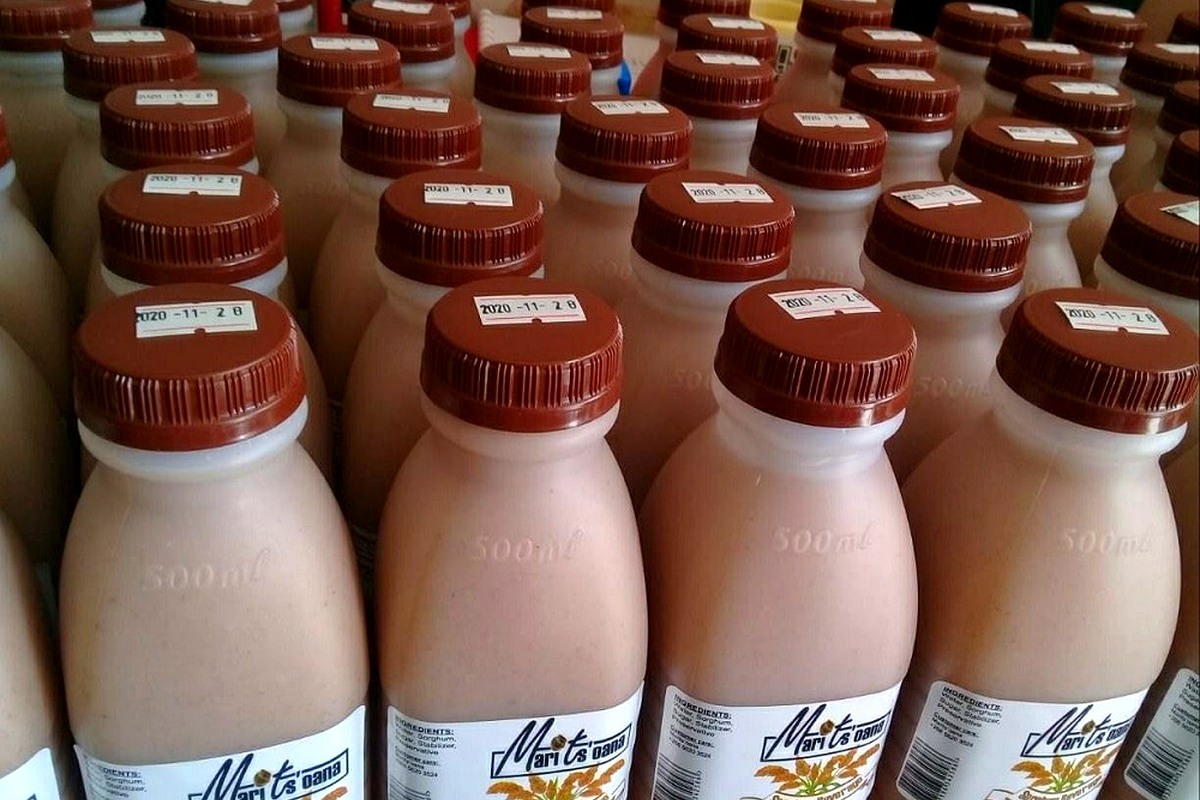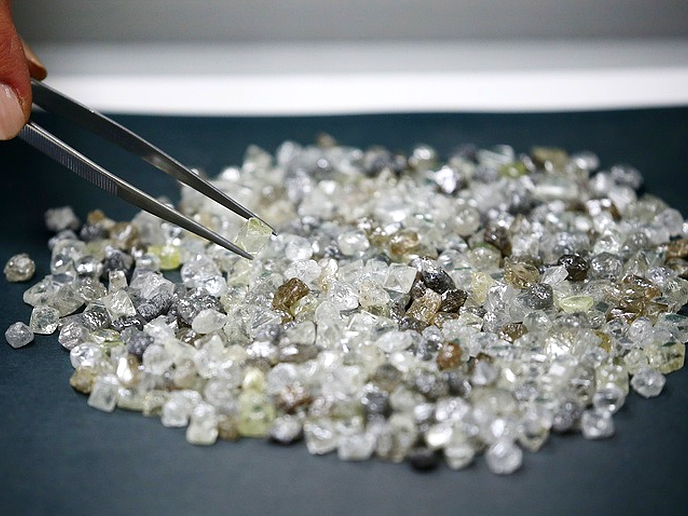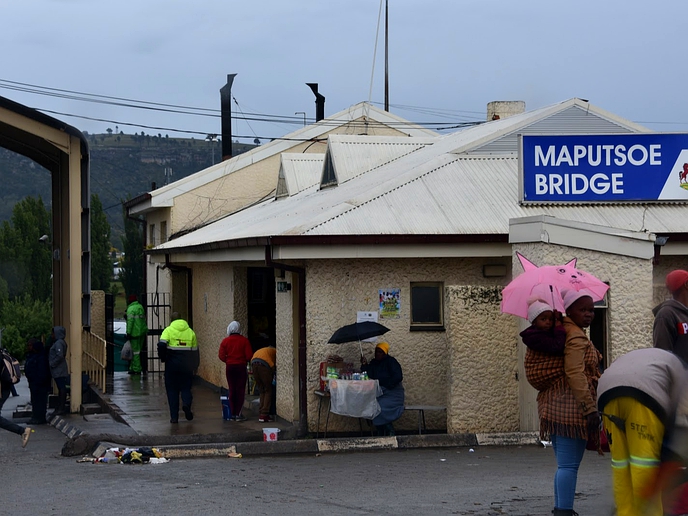A NEW small plant called The Village Factory has been formed in Maseru, to manufacture Maritšoana – a tasty sorghum beverage (motoho) developed at the National University of Lesotho (NUL) Innovation Hub.
business
Nov. 8, 2020
STAFF REPORTER
4 min read
New tasty sorghum beverage hits the streets

The Village Factory's new sorghum product Maritšoana
"Simply put, Maritšoana's taste and fineness have no rival in the market," says Selometsi Baholo, the NUL Biotechnology student attached to develop and take Maritšoana to new markets."So everyone is crazy about it!"
According to Mr Baholo, a group of highly motivated Basotho businessmen along with a local financial cooperative has joined forces with The Village Factory to take the production of Maritšoana to the next level.
“Now the city is on fire as people who have been waiting for this popular refresher to hit the streets are now celebrating,” he smiles.
The beverage is available at the following centres in Maseru - Fruits and Veg City, Ha Mafafa, Maseru City Centre, Enrich Stores, First Choice Supermarket, opposite Sefika Complex, ATM General Café in Koalabata, Thetsane Convenience in Ha Thetsane, ’Na le Uena General Café in Ha Thetsane Lekhalong, Lekhaloaneng Cash and Carry, ISAAS in NUL, Roma, Mpeoa Supermarket in Naleli, Oasis in Lithabaneng, Bakubung General Café in Ha Seoli, and the NUL Innovation Hub in Roma.
“Did you think something as simple as motoho could be developed over a period of four years?
“That is what happened with Maritšoana, Southern Africa’s most delightful sorghum beverage. The reason is simple—there is nothing simple about making a very good motoho—it is a complicated process. You can appreciate this only if you have tried it!
“We put our hearts and souls into this product,” says Baholo. “And we produced the best beverage whose influence in the market will stay for generations.
“You know when you have got it and these guys think they have.”
What makes Maritšoana so special? First - the taste. This is what one Maritšoana enthusiast said about it after taking a big mouthful at NUL Innovation Hub, “I had always thought I tasted the best motoho there was to taste—I was wrong! You can’t go back to any motoho after tasting this one.”
“Now, the taste of Maritšoana was hard to master. That is because, we emphasised on giving it a natural taste. Yep! The so-called motoho you find in the markets is nothing more than lesheshelele mixed with chemicals. With Maritšoana, the taste is based on the action of microorganisms in a carefully controlled environment,” Baholo furthers shows.
“Then there is the fineness. Of course the many variants of motoho in the market are claimed to have this quality of fineness (o nepotsoe) because, quite frankly, fineness drives motoho lovers crazy. But it is one thing to say your motoho is fine, it is quite another to make it fine.
“The last part is the hard part. Yes, it was possible for our lovely grandmas to smoothen motoho in the good old days. Everything is possible when you do things in a small scale. For large scale operations, smoothening has always tricked even the most passionate producers of motoho.
“Except that we did it ourselves. It took extreme patience and we are still working on it, but at least we are already ahead of the market.”
Enjoy our daily newsletter from today
Access exclusive newsletters, along with previews of new media releases.
He says those who have tried producing this beverage have been perplexed by one thing.
“Motoho doesn’t last long even when it has not gone rotten. It collapses and separates into its constituents very quickly. So it has to go off the shelves quiet quickly or people will think something is wrong when there is nothing much. We solved that problem too,” says an obviously elated Mr Baholo, adding that their product is extremely stable.
Interestingly, they did not use any chemicals to achieve it.
“We hope that we will soon be employing more people in the factory,” he also says.
He notes that the NUL Innovation Hub has found that The Village Factory model is one of the best ways for its incubated businesses to expand without too much headache.
“We don’t wait for Big Investors, we don’t wait for the government, we don’t even wait for miracles, we just team up with ordinary people and expand—we did just that we Maritšoana,” he further states.
Tailored for you






